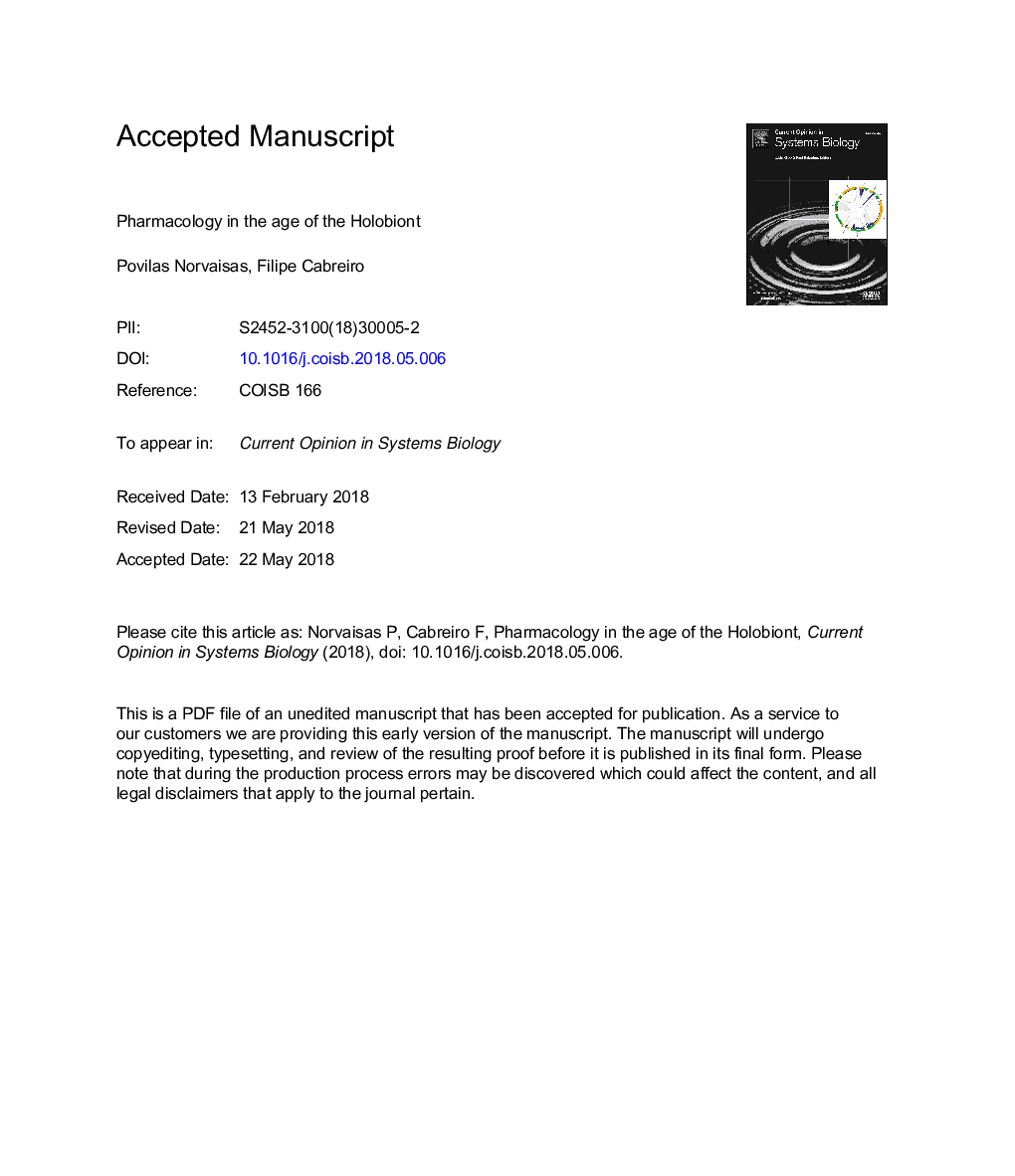| Article ID | Journal | Published Year | Pages | File Type |
|---|---|---|---|---|
| 8918027 | Current Opinion in Systems Biology | 2018 | 16 Pages |
Abstract
Despite the widely acknowledged fact that the microbiota regulates many aspects of human health, the dynamics and factors that govern these interactions remain mostly unknown. Pharmacomicrobiomics is a new research frontier in pharmacology that studies the interaction between drugs and the microbiota. This discipline, by including the microbiota as a key regulator of host health, calls for a redefinition of what constitutes a drug target and ultimately what is a drug or drug therapy. This is supported by recent evidence showing that host physiology can no longer be studied in separation from its microbial ecology and the environmental factors that shape it, as the combination of these elements forms the physiological unit of study - the holobiont. Here we discuss both the novel challenges and untapped opportunities that this new framework creates. On one hand, a more complete understanding of the physiology of the host imposes the development/adaptation of new animal models to address these interactions. In particular, we focus on the advantages and disadvantages of Caenorhabditis elegans as a host organism. On the other hand - a complete understanding of the effects of the microbiota and xenobiotics (e.g. drugs and dietary metabolites) on host health opens new prospects for personalized therapy.
Related Topics
Physical Sciences and Engineering
Computer Science
Computer Science (General)
Authors
Povilas Norvaisas, Filipe Cabreiro,
